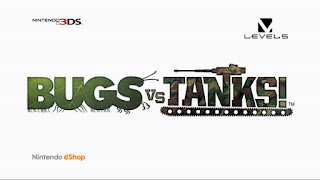 There has recently been much debate over the role of publishers and developers in the game development industry - not least from Official Nintendo Magazine's feature 'Overcomplicating Publishing' which presented publishers as overbearing and controlling through the medium of Mike Roush, the co-founder of Gaijin Games. Is this a fair assumption though? It's all too easy to think of
There has recently been much debate over the role of publishers and developers in the game development industry - not least from Official Nintendo Magazine's feature 'Overcomplicating Publishing' which presented publishers as overbearing and controlling through the medium of Mike Roush, the co-founder of Gaijin Games. Is this a fair assumption though? It's all too easy to think of publishers as the cold, hard businessmen of the gaming world, stifling creative ambition and drowning puppies on their days off. What is the true role of publishing in game development and how has the publisher, developer relationship changed over the years.
After reading the aforementioned article, I was le
ft immediately confused by the actual process of game development. That is, how a game moves from production to the publishers to the distribution. In its simplest form, the developer creates the game with possible commission from publishers who then control which products reach the market and do all the scary PR and marketing shizzle.
Apparently, Mike Roush finds difficulties in the way developers and publishers interact. He suggests that Nintendo needs to move on - make the submission process quick and easy - not the labyrinth of problems and puzzles worthy of Layton and his posse. Steam is a quick online upload site used as a platform for a number of easy game publications that believe it or not, create 10 - 20 times more revenue than console games - sign of the times maybe? Perhaps Nintendo do need to up the game slightly in terms of their submission process - arguing over icon appearance and paperwork is only going to tire and frustrate the common talented game developer.
 The nature of the relationship between the humble, shy nerd of a game developer and the flashy ambition of the publisher has gone through some significant moderations since the days of NES and the discovery of fire. It's possible now to get a game out there without a publisher - just look at all the indie game developers (http://ilikegamesandstuff.blogspot.co.uk/2012/10/revolutionary-gaming-with-fezzes-and.html) - possible but very improbable. Kind of like Mario is able to save Princess Peach on his own, but things
The nature of the relationship between the humble, shy nerd of a game developer and the flashy ambition of the publisher has gone through some significant moderations since the days of NES and the discovery of fire. It's possible now to get a game out there without a publisher - just look at all the indie game developers (http://ilikegamesandstuff.blogspot.co.uk/2012/10/revolutionary-gaming-with-fezzes-and.html) - possible but very improbable. Kind of like Mario is able to save Princess Peach on his own, but things would go a lot easier and quicker if he had his mates around to give him a hand. But then his mates might go changing his outfit - blue dungarees were so 1998 and only farmers can get away with caps in this day and age, ultimately manipulating the general manner in which Mario saves ol' Peachy. However, the bottom line is, this is not a utopian world that we live in. Independent game designers have to work FAR harder to produce their games and then get them noticed compared to giant publishers. As much as we hate to admit it - it's all about the green stuff (cash - calm yourself policeman reader). Just look at the fiasco that was Bayonetta 2, after the original game's dismal release on PS3 no publisher would pick up the game for a sequel. This is the sole reason the game may never have come into existence - if it wasn't for the knight in shining armour that is Nintendo. As image conscious as they are, publishers in reality are necessary for a popular game. Ultimately, a lack of financial and marketing support will result in the developer's nightmare - the 'Zombie App'. One that is available but never downloaded. The homeless game, a wasted bout of creativity with no reviews, no comments, no download rates and no revenue just wandering aimlessly through the abyss of download sites. It doesn't bear thinking about so let's take a minute of silence for any game in this limbo of existence before continuing. Perhaps this kind of app store arrangement could work for Nintendo, and already we are seeing the eShop being used slowly for more independent games, it's slow progress but they're trying.
would go a lot easier and quicker if he had his mates around to give him a hand. But then his mates might go changing his outfit - blue dungarees were so 1998 and only farmers can get away with caps in this day and age, ultimately manipulating the general manner in which Mario saves ol' Peachy. However, the bottom line is, this is not a utopian world that we live in. Independent game designers have to work FAR harder to produce their games and then get them noticed compared to giant publishers. As much as we hate to admit it - it's all about the green stuff (cash - calm yourself policeman reader). Just look at the fiasco that was Bayonetta 2, after the original game's dismal release on PS3 no publisher would pick up the game for a sequel. This is the sole reason the game may never have come into existence - if it wasn't for the knight in shining armour that is Nintendo. As image conscious as they are, publishers in reality are necessary for a popular game. Ultimately, a lack of financial and marketing support will result in the developer's nightmare - the 'Zombie App'. One that is available but never downloaded. The homeless game, a wasted bout of creativity with no reviews, no comments, no download rates and no revenue just wandering aimlessly through the abyss of download sites. It doesn't bear thinking about so let's take a minute of silence for any game in this limbo of existence before continuing. Perhaps this kind of app store arrangement could work for Nintendo, and already we are seeing the eShop being used slowly for more independent games, it's slow progress but they're trying.A real problem for fresh-faced, excitable little developers is the lack of control they may face over their product. Ayabe from the Guild team - a group of individuals working within a team to create their own original games - suggests that "innovation in game design as a whole is diminishing" - essentially creators are conforming to the needs of the end users too much and not standing strong and creating what they want to
create. The Guild lot are a great example of this originality in game design. From a first look at their game 'Bugs vs Tanks' it can be argued that some of that green stuff (yes policeman reader) was included in the creation of their games. This would never have made it to publishing but represents the personal ideas of game developers, not the publisher's assumptions of the audience's requirements - a very different order of events. The ethos of Guild is essentially that all individuals have different wants. Now, this has been applied to both the developers wants and the audience's wants. Guild seem to be the first collection of people to have recognised that an audience is unique, it's like the invention of the wheel all over again. Back to the idea of control, the team behind Guild were working on a lower budget and team size which meant less pressure and more creative control, interesting equation. An equation however that seems to have been ignored by Nintendo, who is looking to increase its team size - interesting. It has been said that publishers mistreat developers - they strangle their creative decisions and demand. No one likes demands. Guild has taught us that publishers need to give developers their freedom in doing what they do best - developing.
Publishers are like parents. They demand and control but are still an absolute necessity in survival. Your mother will always ask you to complete random jobs around the house before you're allowed to step foot outside the door - as if you're the ONLY person in the world with the qualifications to put the washing on or tidy the lounge but equally you will always ask your mother for £20 before stepping out of the front door. It's a give and take thing. I don't do jobs and my mother would rarely give me £20 before i went to the pub - a tenner maybe. Though I am insanely excited about 'Bugs vs Tanks' and have just seen that it is available now on 3DS eShop in the UK - good times.
Thanks for reading :)




No comments:
Post a Comment